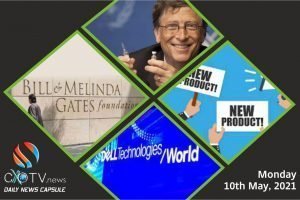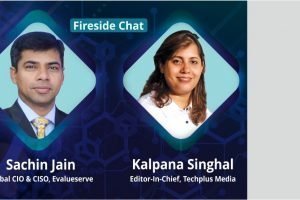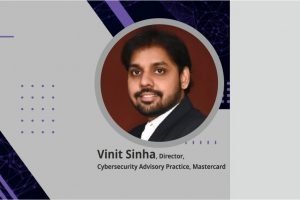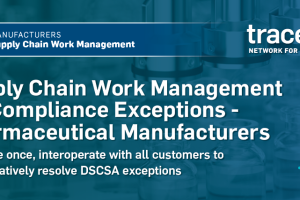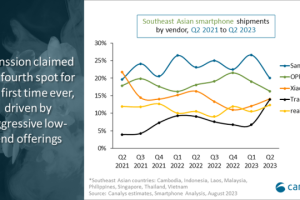Says, Dr. Nitika K. Dev, a young and dynamic gold medalist in MDS Orthodontist and has a vibrant work experience as a Consultant in renowned hospital of Noida like Max hospital and JayPee Hospital
Based on all of the professional accolades that you have achieved, some of which have been highlighted, how would you best define your job?
If you look at the overall big picture that is most important in life, I would say the parts of my career and the extracurricular aspects that I did that helped people the most — that are what’s most important in life.
Where do you see the future of dentistry headed?
A big part of where dentistry is going is advancements in science and technology. (As clinicians) we are preparing teeth less. Our materials are better. We’re incorporating more technology into dentistry. We are being able to do crowns chairside. There are new kinds of anesthesia. It’s always going to be getting better and better.
The future for dentists…
I don’t think machines will ever replace dentists. There is always going to be a need for dentists. (Also) there is still so much growth that needs to happen in Third World countries with access to care, dental education, and oral hygiene.
What advice would you give to someone opening up a practice today?
A big part of your success will be based on how good of a dentist you are and your command of social media. When started mypractice, I did a lot of ads in newspapers and journals. Those things are not effective anymore. You need to master social media, Facebook, Twitter. You need to have a great and interactive website. You need to stay current on continuing education and always (be) learning.
When you first graduated from dental school, what was your vision for the dental career you wanted to have?
I wanted to create an environment where my patients would be receiving comprehensive dental care, even if they came in for an emergency. I wanted to let them know that they were getting the best from me, and that once they came to me for their dental needs, if they were willing to choose me as a dentist, we would be giving them an experience.
Can you elaborate more on this ‘experience’ to which you refer?
The vision I have had for my practice has been one not just limited to my views, but I have my entire staff buy into what we want to create. We want each patient to feel that they are cared for beyond just their oral care needs. If patients choose me as their dentist, I want them to know that their overall treatment plan is of great concern … that they are going to be married to us (for life, so to speak). If they come once, twice, three, or four times per year, their oral care needs and that of their friends and family is our greatest goal. If they need to see a hard-to-reach specialist, we strive to get them an appointment within the hour. If they are concerned about a specific dental need, we welcome that challenge. We want our patients to know that it’s not just about (teeth), but that they are special. Our relationship with them is special, and meeting their goals and building and maintaining their trust are of the highest significance.
What were some of the early successes and challenges in the fields of dentistry early in your practice?
The different bonding agents that were around in the older days along with early mesh implant systems were ahead of their time in idea, but nowhere near the technology and biomaterials we have today. You always strive to give the best to your patients with the latest in technology existing in the market at the time. I always tried to learn from the leaders in biomaterials and the most up-to-date lab resources at our disposal at any given time. In the early days of esthetic dentistry, you did see some successes with restorations that were progressiveand you also learned to stay away from materials that may not stand the test of time.
Earlier we used to have very limited options with the type of braces that were available. For example we only had metallic braces in the earlier 1980s, which were replaced by ceramic braces in the 1990s. But with CAD-CAM computer software we are actually able to create invisible braces known as invisalign in today’s date which is the most advanced and contemporary treatment for malaligned teeth.
Also, people are very, very, very scared of the dentist and I probably hear that 10 times a day: “it’s not you, I really like you but I just hate the dentist and I’m so scared and I had this one bad experience.” Seriously, every other patient, I get a story like that. It doesn’t bother me, but I’ve talked to some older dentists, and they sometimes get a chip on their shoulder.
Do you feel that new dentists like you, are prepared enough to face the challenges upon graduation pertaining to patient’s demands, practice management, and clinical readiness?
New dentists need to understand that in their career they must wear different hats. Clinically, you have to take as many courses as you can, as often as you can. You’re always going to be learning. When you become an expert in a specific field in dentistry, it must become second nature. When you get good, patients pick up on it and will trust your judgment. But new dentists must also learn about the business side of dentistry and the practice-management aspect that comes with it. I encourage curriculum in dental schools to expand on the other skills that are necessary: managing staff, leading a small business, understanding the bottom line, communication with patients, and being at the forefront of dental care needs of an aging patient base, just to name a few of the challenges that come with the profession.
What is most rewarding?
I guess, if I’m being completely honest I would say helping people and being financially successful. We’re very well reimbursed for what we do. Also, having the freedom of not being on call. Unlike some other medical specialties, you aren’t in the position where you have someone’s life in your hands. The biggest thing you can do is ruin someone’s tooth, but even then you always have options. Although it can be stressful at times and you do have to know what you’re doing at the end of the day but it’s not like you’re in the middle of somebody’s guts and they’re not going to wake up.
What is a common misconception people have about what you do?
A lot of people who have never had a toothache think all we do is exams and cleanings. If they have never had a filling, root canal, or an extraction they probably don’t realize how much we do. And others think we’re scary, which is a common misconception about dentists. With more advances like rotary RCTs, RVGs x -rays ,invisalign etc. along with proper instructions , dentistry has taken a new turn from the past long taking and painful treatments.
What are your goals/dreams for the future?
To be the very best that I can be. Seriously, I want to be the best dentist. I want to know everything; I want to be very well educated. I already own the practice but I still want to go back to school and want to specialize and get the continued education.
What advice would you offer someone considering this career?
I would say to new dentists the following:
Never stop learning. Dentistry is not static. It’s always moving. It’s always changing. They need to continue to learn and grow as dentistry grows.
Number Two: Don’t wait for opportunities. Create them. If you are just waiting around and waiting for people to knock on your door, you’re gonna go broke. You need to create opportunities and when you get those opportunities; you need to really take advantage of them.













